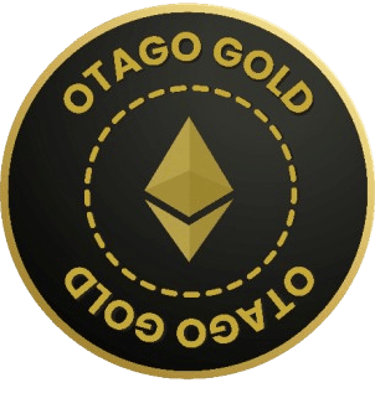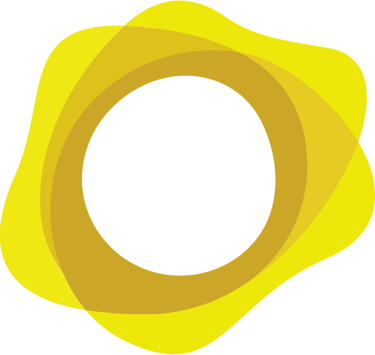White Paper
Otago Gold, May 2024
Executive Summary
Otago Gold is a pioneering NFT initiative that bridges the gap between real-world gold mining and blockchain-based digital ownership. The project offers investors the opportunity to hold limited-edition NFTs that are directly tied to operating gold mining sites in the historic Otago region of New Zealand.
Unlike traditional NFT projects that focus solely on digital art or speculation, Otago Gold introduces a tangible, asset-backed model. Each NFT represents a stake in active mining operations, entitling holders to receive regular stablecoin airdrops backed by physical gold. These distributions are powered by the PAXG stablecoin, which is fully backed by one troy ounce of gold per token.
The project features a tiered NFT system, offering varying levels of participation and reward:
- Tier 1 Tokens (10 total): Premium access, highest gold-backed rewards, and exclusive involvement opportunities.
- Tier 2 Tokens (200 total): Regular stablecoin distributions and access to select events and on-site prospecting.
Built on the Ethereum Proof-of-Stake blockchain, Otago Gold prioritizes energy efficiency, security, and environmental responsibility. No chemicals are used in the extraction process, and all digital assets are secured through decentralized storage networks like IPFS.
Holders gain access to:
On-site gold prospecting experiences in New Zealand
Invitations to premium events such as TOKEN2049
Ongoing utility through staking, fractional ownership options, and cross-chain interoperability
The project is co-founded by Stephen Robinson and Christopher Pritchard, who bring over 50 years of combined experience in gold mining, corporate leadership, and entrepreneurship across Australia and New Zealand.
With a projected lifespan of 10–12 years, Otago Gold offers both digital innovation and real-world value, culminating in an eventual sale of mining permits and a final distribution of proceeds to token holders.
Asset-Backed NFTs: Otago Gold NFTs are connected to real-world gold prospecting and mining operations, making them more than just digital art.
User-Friendly Interface: The project will be based on Otago Gold's own exchange and we will also maintain a secondary exchange on the OpenSea exchange.
Our NFT/ Tokens will be built and run on the Ethereum blockchain.
Low-Energy / Carbon Transactions: Built on a Proof-of-Stake (PoS) blockchain, Otago Gold significantly reduces energy consumption and the projects carbon footprint.
By combining the traditional value of gold with modern blockchain technology, Otago Gold makes NFTs accessible, affordable, and environmentally conscious.
Problem Statement
Several challenges currently exist within the NFT market:
Limited Real-World Connection: NFTs are often disconnected from tangible value or real-world assets.
Complex User Experience: Many NFT platforms are overly complicated, deterring average users that are unfamiliar with crypto and blockchain.
Environmental Concerns: PoW (Proof-of-Work) blockchains have significant environmental impacts, raising sustainability concerns.
These issues create barriers either real or perceived to broader adoption, and make it difficult for creators and users to fully benefit from the NFT ecosystem.
Solution: The Otago Gold Ecosystem
Otago Gold addresses these challenges by creating an NFT ecosystem grounded in real-world assets and blockchain technology:
Asset-Backed NFTs: Otago Gold NFTs are connected to real-world gold prospecting and mining operations, making them more than just digital art.
User-Friendly Interface: The project will be based on Otago Gold's own exchange. Our NFT/tokens will be built and run on the Ethereum blockchain.
Low-Energy / Carbon Transactions: Built on a Proof-of-Stake (PoS) blockchain, Otago Gold significantly reduces energy consumption and the project's carbon footprint.
By combining the traditional value of gold with modern blockchain technology, Otago Gold makes NFTs accessible, affordable, and environmentally conscious.
Key Features and Unique Value Proposition
Historical and Tangible Value: Otago Gold NFTs offer a direct connection to gold mining operations in New Zealand, providing digital assets with real-world value.
Eco-Friendly Blockchain: The platform operates on a PoS (Proof-of-Stake) blockchain to reduce its environmental impact.
Cross-Chain Compatibility: Otago Gold NFTs can be transferred across multiple blockchains where they'll be supported by bridging, increasing liquidity and accessibility.
Exclusive Experiences: Under certain conditions token holders have the potential to be part of the mining operations and work with us in the field on real life mining operations.
Token Holder Benefits
Otago Gold provides a wide range of benefits to token holders, making the project more than just a digital asset platform:
Access to Gold Prospecting Areas: Token holders can visit Otago Gold’s own historical gold mining sites, where they can prospect for gold and keep what they find.
Airdrops of Mined Gold: Token holders will receive periodic airdrops of a gold-backed stablecoin funded by the gold recovered from Otago Gold’s large-scale mining projects, linking the digital and physical world.
These benefits make Otago Gold a project with real-world rewards, unlike many traditional NFT projects that focus only on digital art or gaming experiences.
Technology Overview
Blockchain Platform: Ethereum.
Otago Gold operates on a Proof-of-Stake (PoS) blockchain, providing fast and energy-efficient transactions while minimising the environmental impact.
Smart Contracts:
Smart contracts manage all NFTs minted, royalties and transactions on the marketplace, ensuring transparency, security, and automation. Our custom backend built on WEB3 tracks the ownership of each NFT/token to allow the distribution of the gold rewards to go to the correct wallet.
Security:
Otago Gold utilises decentralised storage networks such as IPFS to secure digital assets, ensuring that NFTs and metadata are tamper-proof and censorship-resistant.
Cross-Chain Compatibility:
Otago Gold plans to support cross-chain NFT functionality, meaning assets can be traded across different blockchains for increased liquidity.
Tokenomics
The native token of Otago Gold, OGT (Otago Gold Token), serves as the utility token for the ecosystem, enabling users to transact, and participate in tours and other activities. It is effectively a membership token to Otago Gold’s project.
Tiered Token System:
Otago Gold introduces a two-tier token system, allowing participants to choose from different levels of participation, each with distinct benefits and levels of stablecoin airdrops. Both Tiers give access to the Shotover River and Arrow River prospecting permits where you keep 100% of what you find.
Benefits: Holders receive the highest PAXG airdrops.
Target Audience: Investors seeking highest PAXG airdrops and the potential for active involvement in the project.
Benefits: Regular PAXG airdrops and opportunities for participation in special events.
Target Audience: Enthusiasts seeking regular PAXG airdrops and a high level of engagement in Otago Gold.
Tokenomics and Gold Distributions:
Only 210 NFT/tokens will be created. This is fixed and no additional tokens will be created or released.
Two of the Tier 1 tokens will be held by the creators and 100 of the Tier 2 tokens will be held by the creators.
These allocations to the project creators holdings, form the remuneration for the Project creators.
Each troy ounce of gold that is mined after expenses will be sold and converted into PAXG.
PAXG is divisible to 18 decimal places, and will be distributed to token holders on the following basis;
10% divided equally to each of the 10 Tier 1 token holders.
90% divided equally to each of the 200 Tier 2 token holders.
There will be no limit on the number of tokens that can be held by any one token holder.
Holding multiple tokens will entitle the holder to that token's distribution, irrespective of the total number of tokens they hold.
Non-Allocated Tokens:
In the event that any token is not held by an external token holder or are not part of the pool allocated to either of the project's creators. These tokens shall be known as non-allocated tokens.
Non-allocated tokens will still receive the gold distribution as it would be if it was allocated.
The gold distribution attached to each non-allocated token shall be retained by the project and used for the betterment of the project and all token holders.
If an unallocated token becomes allocated at any time, then the token holder must wait at least 90 days before becoming eligible for any gold distributions.
The token holder of a previously non-allocated token shall not be entitled to any previous distributions allocated to that token or tokens.
Roadmap
Phase 1: Platform Launch
Pre-Token Offering (PTO) Expected – October to December 2024
Launch of NFT minting and marketplace – December 2024
Official Launch at Token 2049 in Dubai on April 2025.
Phase 2: Ecosystem Expansion
Cross-chain NFT functionality – TBA
Introduction of staking and rewards – TBA
Fractional ownership feature for high-value NFTs, available by arrangement from 15 May 2025.
Phase 3: Community Engagement
Invitations to selected token holders to attend hosted events E.g. Token 2049, or participate at a higher level in the project, subject to the token holder having the required skill sets.
Phase 4: Partnerships and Global Expansion
Collaboration with eco-friendly organisations.
Partnerships with community groups and educational institutions.
Team
Stephen Robinson (Co-Founder)
Australian based Stephen has decades of experience in the gold prospecting industry, having worked in mining operations both underground and above ground. His primary business interests now lie in media and advertising in both Australia and New Zealand. He heads up the corporate side of the project and ensures that Otago Gold is built on a foundation of sound industry practices.
Christopher Pritchard (Co-Founder)
New Zealand based Christopher brings over 25 years of gold mining and business experience. His practical experience in the New Zealand mining theatre coupled with developing his own hospitality business has given him the unique skill set needed to drive the Otago Gold Project. Chris will manage the infield operations for the project.
Together, Stephen and Christopher’s combined 50+ years of experience gives the Otago Gold project a genuine level of relevant expertise.
Legal Considerations
Otago Gold is committed to complying with all relevant legal frameworks and regulations, ensuring the security and legality of all platform activities.
Regulatory Compliance:
Otago Gold adheres to Know Your Customer (KYC) and Anti-Money Laundering (AML) regulations to ensure safe and compliant transactions on the platform.
The Otago Gold project is a registered company in New Zealand and will be compliant with the New Zealand Corporations and Taxation Laws.
Intellectual Property:
Creators retain full intellectual property rights over the NFTs they mint on Otago Gold, with licensing terms embedded directly into smart contracts to ensure transparency and fairness. This will ensure the project creators can manage the project for the benefit of all token holders.
Environmental Sustainability:
Otago Gold’s commitment to sustainability is demonstrated by its choice to use a Proof-of-Stake (PoS) blockchain, which is far more energy-efficient than Proof-of-Work systems.
Otago Gold's mining operations only use water, and no chemicals or environmentally damaging processes are used.
Otago Gold is committed to consultations with all parties in a fair and transparent manner.
Project Lifespan
The project has an estimated lifetime of 10 to 12 years of viable, small-scale projects that the NFT/token holders can benefit from.
The project aims to target the highest value areas on each permit and leave in ground lower grade of gold that have too a high a cost to extract.
End of Project and Exit Strategy
On conclusion the 3 mining permits will be sold on the open market, the sale price will reflect what gold reserves and at what grades remain on each permit and the price of gold at the time of the sale.
Sale proceeds for the mining permits will be distributed back to the token holders as per the white paper formula.
Once that is completed the token s will cease to have a value with Otago Gold and the NFT/ Token holder may retain the art work as desired.
The Otago Gold distribution sites will be closed and the project will come to an end.
Heritage & Technology
Experience tangible real world asset back NFT's today
Contact Information
© 2025. All rights reserved.


